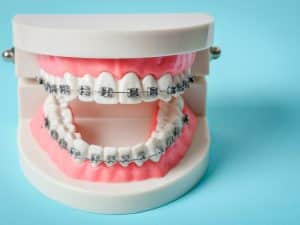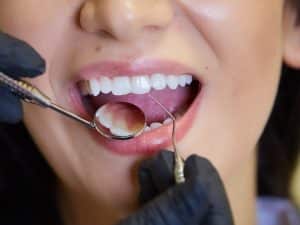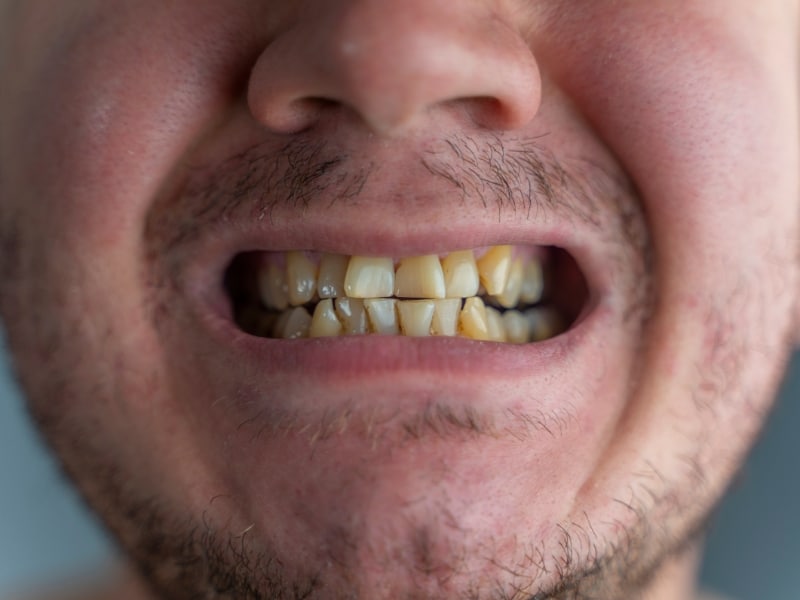Teeth misalignment is a common dental issue that can develop gradually, often without you realising it. Over time, many factors can lead to teeth shifting from their original position, causing discomfort, functional problems, and affecting the aesthetics of your smile. This article explores what causes teeth to become misaligned, how to spot the signs, and what can be done to prevent or correct misalignment.
What is the most common reason teeth are misaligned?
One of the most frequent causes of misaligned teeth is genetics. The size and shape of your jaw can significantly affect how your teeth are positioned. Suppose you inherit a smaller jaw from one parent and more prominent teeth from the other. In that case, crowding may occur, pushing teeth out of alignment. Similarly, the opposite problem—spacing issues—can happen if your jaw is more significant than necessary for your teeth. In addition, understanding the various causes of dental malocclusion can help you prevent or address this common dental issue.
Other common causes include:
- Thumb sucking in childhood can push the front teeth out of place.
- Tongue thrusting, where the tongue presses against the teeth while swallowing or speaking, slowly shifting them forward.
- Premature tooth loss or delayed loss of baby teeth can cause permanent teeth to drift into the space.
- Trauma or injury to the face or mouth, which can displace teeth
- Bruxism (teeth grinding): Grinding your teeth, especially while sleeping, can gradually wear down and shift teeth.
- Poor dental habits include biting nails, chewing pencils, or using teeth to open objects.
- Sleep apnea is when breathing problems during sleep lead to abnormal jaw positioning.
- Lack of dental care can lead to gum disease and tooth loss, further affecting the alignment of the remaining teeth.
How can you tell if your teeth are misaligned?
It’s not always obvious when your teeth are misaligned, but there are some telltale signs to watch out for:
- Difficulty chewing or biting into food evenly.
- Frequent biting of your cheek or tongue when speaking or eating.
- Jaw pain or discomfort, especially after waking up.
- Headaches can be linked to stress on the jaw from misaligned teeth.
- Noticeable gaps or crowding of teeth.
If you experience any of these symptoms, it might be time to seek advice from a professional.
What are the consequences of misaligned teeth?
Misaligned teeth don’t just affect your appearance; they can also lead to several health problems if left untreated. These include:
- There is an increased risk of tooth decay and gum disease. Crowded teeth are also more challenging to clean properly, leading to plaque build-up.
- Jaw strain and TMJ (temporomandibular joint) disorders can cause chronic pain.
- Worn-down teeth due to uneven pressure during chewing.
- Difficulty in speaking clearly or pronouncing certain words.
In the long run, misaligned teeth can lead to more complex dental issues requiring extensive treatment. Addressing these issues early can save both your teeth and your wallet.
What can be done about misaligned teeth?
Fortunately, there are several ways to correct misaligned teeth depending on the severity of the misalignment:
- Braces: Traditional metal braces are effective in treating more severe cases of misalignment.

- Clear aligners like Invisalign are a discreet way to straighten teeth without metal brackets.
- Retainers: For minor misalignments or after completing treatment with braces, retainers can help keep your teeth in place.
- Dental implants or crowns may be necessary if tooth loss or damage has affected alignment.
Each treatment is tailored to your needs, ensuring you receive the best care possible.
How can braces and clear aligners help correct teeth misalignment?
Both braces and clear aligners are effective at correcting teeth misalignment, but they work in different ways.
- Braces use metal brackets and wires to shift teeth into their correct position gradually. They’re ideal for severe cases of misalignment and are highly effective, especially for younger patients.
- Clear aligners are removable, nearly invisible trays that fit snugly over your teeth and gradually move them into place. Clear aligners, like Invisalign, are a popular choice for adults due to their discreet appearance and ease of use.
Both treatments require regular check-ups with your dentist to monitor progress and ensure your teeth move as expected.
How can you prevent teeth from becoming misaligned over time?
While genetics and age play a significant role in the alignment of your teeth, there are steps you can take to minimise the risk of misalignment as you grow older:
- Practice oral hygiene by brushing and flossing regularly to prevent gum disease and tooth loss.
- Wear a mouthguard if you grind your teeth at night or participate in sports.
- Regular dental check-ups can catch early signs of misalignment and allow for preventive measures.

- Avoid bad habits, such as nail-biting, using your teeth as tools, or excessively consuming hard foods.
Taking care of your teeth now can save you from discomfort and costly dental procedures in the future.
Are there affordable options for teeth straightening?
While traditional braces can be costly, there are more affordable options available. Several dental practices provide flexible payment arrangements to make treatment more affordable. Additionally, some dental insurance plans may cover a portion of the cost of orthodontic treatment.
Where can you find high-quality treatments?
Finding a reliable provider is essential if you’re considering orthodontic treatment for misaligned teeth. Here are some factors to consider when searching for high-quality orthodontic care:
- Experienced professionals: Look for clinics with qualified orthodontists with a proven track record of treating various alignment issues.
- Range of services: Ensure the clinic offers a variety of orthodontic options, such as traditional braces and clear aligners, to cater to different needs and preferences.
- Advanced technology: Clinics utilising modern technology, such as 3D printing and digital imaging, can provide more accurate diagnoses and treatment plans.
- Positive reviews: Check online reviews and testimonials from previous patients to gauge the quality of care and patient satisfaction.
- Convenient location and hours: Choose a clinic that is easily accessible and has flexible hours to accommodate your schedule.
Improve your smile, improve your life
Whether you’re considering braces, clear aligners, or any other form of teeth straightening, Marsfield Dental Care is here to help. Our team is committed to providing comprehensive dental care tailored to your needs. Our convenient location near public transport, on-site parking, and Saturday hours make prioritising your dental health accessible.
Contact Marsfield Dental for teeth straightening and take the first step towards a straighter, healthier smile.

